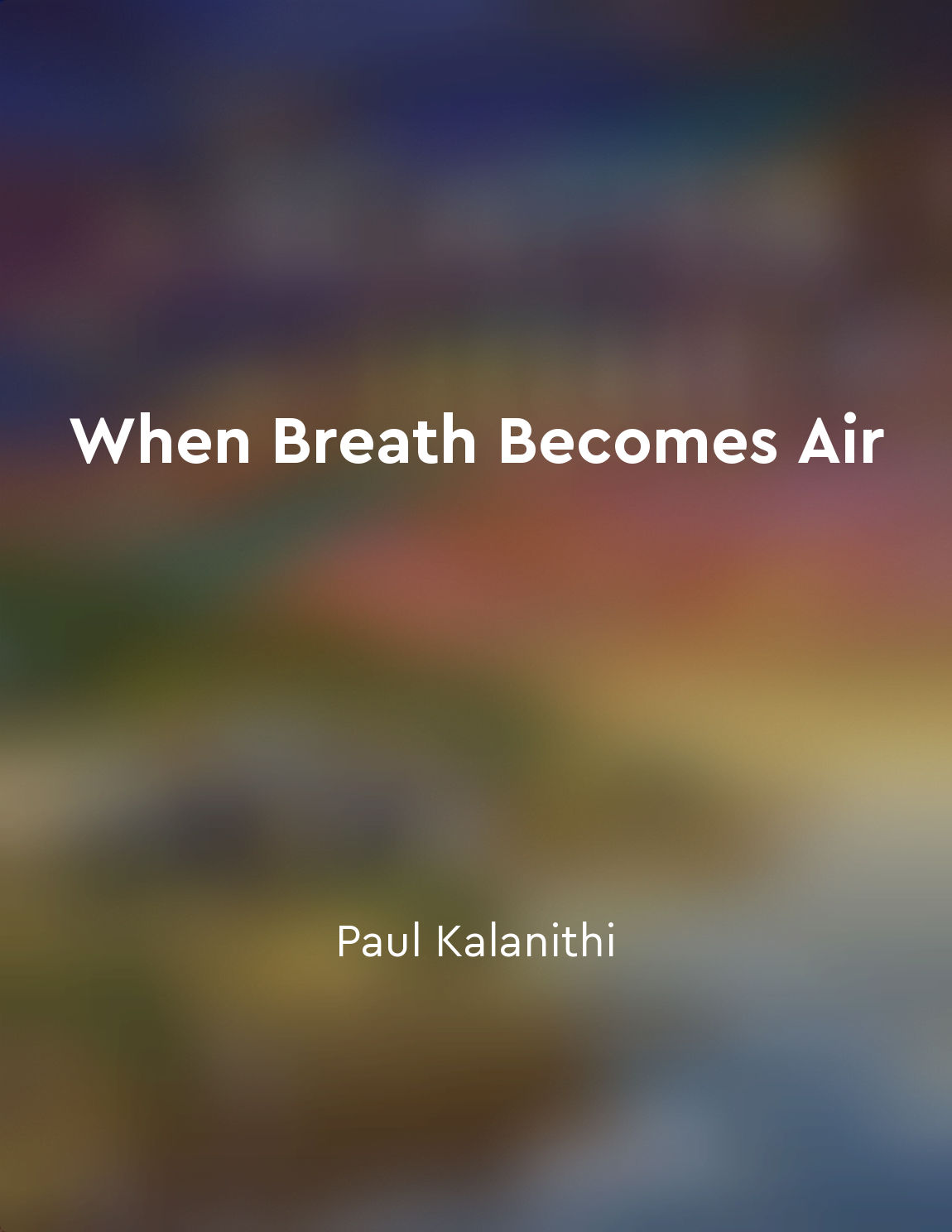Pain and suffering are common experiences in the dying process from "summary" of How We Die by Sherwin B Nuland
As we approach the end of life, pain and suffering become inevitable companions on the journey towards death. The dying process is a complex interplay of physical, emotional, and psychological distress that can manifest in various ways. Physical pain, often the most visible and tangible form of suffering, can be excruciating and relentless. It can stem from the underlying disease itself or the treatments aimed at prolonging life. The body, once a source of vitality and strength, now becomes a battleground where pain reigns supreme. But pain is not the only form of suffering that accompanies death. Emotional anguish, such as fear, anxiety, and depression, can be equally debilitating. The realization of one's mortality, the loss of independence and control, and the burden of unfinished business can weigh heavily on the mind and soul. Psychologically, the dying process can bring about feelings of despair, hopelessness, and existential questioning. The sense of loss, both of the self and of loved ones, can be overwhelming. As the body deteriorates and the mind grapples with its impending demise, the dying person may experience a profound sense of isolation and alienation. The world that once seemed familiar and welcoming now appears distant and indifferent. The connections that once sustained them - family, friends, community - may begin to fade away, leaving them feeling adrift and alone. The sense of abandonment, whether real or perceived, can deepen the sense of suffering and despair. In the face of such profound pain and suffering, it is essential to provide compassionate care and support to those at the end of life. Palliative care, which focuses on relieving suffering and improving quality of life, can make a significant difference in the dying process. By addressing physical symptoms, managing emotional distress, and providing spiritual comfort, healthcare professionals can help ease the burden of pain and suffering for the dying person and their loved ones.- The experience of pain and suffering in the dying process is a universal and deeply human phenomenon. It is a reminder of our mortality, our vulnerability, and our interconnectedness as human beings. In confronting death, we are forced to confront the fragility of life itself and the inevitability of our own mortality. Pain and suffering, then, are not merely individual experiences, but reflections of the shared human experience of life and death.
Similar Posts

Stop comparing yourself to others
One of the key concepts to living a happier life is to stop comparing yourself to others. When we constantly compare ourselves ...
Society's expectations can hinder individual development
In our pursuit of self-discovery, we often find ourselves at odds with the expectations imposed upon us by society. These socie...
Connect with others
The ability to connect with others is one of the most important skills in the 21st century. In a world that is increasingly int...
Contemplating death can help us prioritize what truly matters
When we face our own mortality, it forces us to confront the reality that our time on this earth is limited. This awareness can...
Hospice care provides comfort and support in the final stages of life
Hospice care is a unique approach to end-of-life care that focuses on providing comfort and support to individuals in their fin...
Knowing that life is finite can inspire us to make the most of it
The realization that life is limited can be a powerful motivator for us to live life to the fullest. When we acknowledge our mo...

Communication is key in healthcare
In medicine, the art of communication is often overlooked. It is easy to focus solely on the technical aspects of healthcare, f...

